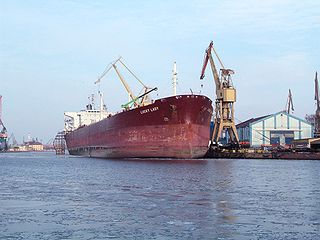At common law, damages are a remedy in the form of a monetary award to be paid to a claimant as compensation for loss or injury. To warrant the award, the claimant must show that a breach of duty has caused foreseeable loss. To be recognised at law, the loss must involve damage to property, or mental or physical injury; pure economic loss is rarely recognised for the award of damages.
Negligence is a failure to exercise appropriate and or ethical ruled care expected to be exercised amongst specified circumstances. The area of tort law known as negligence involves harm caused by failing to act as a form of carelessness possibly with extenuating circumstances. The core concept of negligence is that people should exercise reasonable care in their actions, by taking account of the potential harm that they might foreseeably cause to other people or property.

Donoghue v Stevenson[1932] UKHL 100 was a landmark court decision in Scots delict law and English tort law by the House of Lords. It laid the foundation of the modern law of negligence, establishing general principles of the duty of care.
Delict in Scots Law is, amongst other things, the responsibility to make reparation caused by breach of a duty of care or, arguably, the duty to refrain from committing such breaches. The equivalent in English law and other common law jurisdictions is known as tort law.
In tort law, the standard of care is the only degree of prudence and caution required of an individual who is under a duty of care.

Bolam v Friern Hospital Management Committee [1957] 1 WLR 582 is an English tort law case that lays down the typical rule for assessing the appropriate standard of reasonable care in negligence cases involving skilled professionals : the Bolam test. Where the defendant has represented him- or herself as having more than average skills and abilities, that is as a professional "as all doctors do", this test expects standards which must be in accordance with a responsible body of opinion, even if others differ in opinion. In other words, the Bolam test states that "If a doctor reaches the standard of a responsible body of medical opinion, he is not negligent".
Heaven v Pender (1883) 11 QBD 503, Court of Appeal) was an English tort law case, which foreshadowed the birth of the modern law of negligence.
Volenti non fit iniuria is a common law doctrine which states that if someone willingly places themselves in a position where harm might result, knowing that some degree of harm might result, they are not able to bring a claim against the other party in tort or delict. Volenti applies only to the risk which a reasonable person would consider them as having assumed by their actions; thus a boxer consents to being hit, and to the injuries that might be expected from being hit, but does not consent to his opponent striking him with an iron bar, or punching him outside the usual terms of boxing. Volenti is also known as a "voluntary assumption of risk."
Ex turpi causa non oritur actio is a legal doctrine which states that a plaintiff will be unable to pursue legal remedy if it arises in connection with his own illegal act. Particularly relevant in the law of contract, tort and trusts, ex turpi causa is also known as the illegality defence, since a defendant may plead that even though, for instance, he broke a contract, conducted himself negligently or broke an equitable duty, nevertheless a claimant by reason of his own illegality cannot sue. The UK Supreme Court provided a thorough reconsideration of the doctrine in 2016 in Patel v Mirza.

Overseas Tankship (UK) Ltd v Morts Dock and Engineering Co Ltd, commonly known as Wagon Mound , is a landmark tort law case, which imposed a remoteness rule for causation in negligence. The Privy Council held that a party can be held liable only for loss that was reasonably foreseeable. Contributory negligence on the part of the dock owners was also relevant in the decision, and was essential to the outcome, although not central to this case's legal significance.

Hughes v Lord Advocate[1963] UKHL 31 is an important Scottish delict case decided by the House of Lords on causation. The case is also influential in negligence in the English law of tort.
Sports law in the United States overlaps substantially with labor law, contract law, competition or antitrust law, and tort law. Issues like defamation and privacy rights are also integral aspects of sports law. This area of law was established as a separate and important entity only a few decades ago, coinciding with the rise of player-agents and increased media scrutiny of sports law topics.

The Occupiers' Liability Act 1957 is an Act of the Parliament of the United Kingdom that covers occupiers' liability. The result of the Third Report of the Law Reform Committee, the Act was introduced to Parliament as the Occupiers' Liability Bill and granted the Royal Assent on 6 June 1957, coming into force on 1 January 1958. The Act unified several classes of visitors to property and the duty of care owed to them by the occupier, as well as codifying elements of the common law relating to this duty of care. It also covered the duty owed to parties to a contract entering the property and ways of excluding the liability for visitors. The Act introduced an element of liability for landlords who failed to maintain their properties and were as a result responsible for the injury of a non-tenant, something counter to the previous common law rule in English law. The Act is still valid law, and forms much of the law relating to occupiers' liability in English law along with the Occupiers' Liability Act 1984.
Occupiers' liability is a field of tort law, codified in statute, which concerns the duty of care owed by those who occupy real property, through ownership or lease, to people who visit or trespass. It deals with liability that may arise from accidents caused by the defective or dangerous condition of the premises. In English law, occupiers' liability towards visitors is regulated in the Occupiers' Liability Act 1957. In addition, occupiers' liability to trespassers is provided under the Occupiers' Liability Act 1984. Although the law largely codified the earlier common law, the difference between a "visitor" and a "trespasser", and the definition of an "occupier" continue to rely on cases for their meaning.

Nettleship v Weston [1971] 2 QB 691 is an English Court of Appeal judgment dealing with the breach of duty in negligence claims. In this case the court had considered the question of the standard of care that should be applied to a learner driver, and whether it should be the same as is expected of an experienced driver.
Wooldridge v Sumner [1963] 2 QB 43 is an English Court of Appeal judgment dealing with the liability in negligence of participants in sporting competitions towards spectators. The Court of Appeal held in this case that sportsmen would only be liable to spectators if they showed "reckless disregard" for their safety.
Donoghue v Folkestone Properties Limited (2003) is an English court case heard in the Court of Appeal of England and Wales concerning the tort of occupiers' liability from the Occupiers' Liability Act 1984.
The civil liability of a recreational diver may include a duty of care to another diver during a dive. Breach of this duty that is a proximate cause of injury or loss to the other diver may lead to civil litigation for damages in compensation for the injury or loss suffered.







